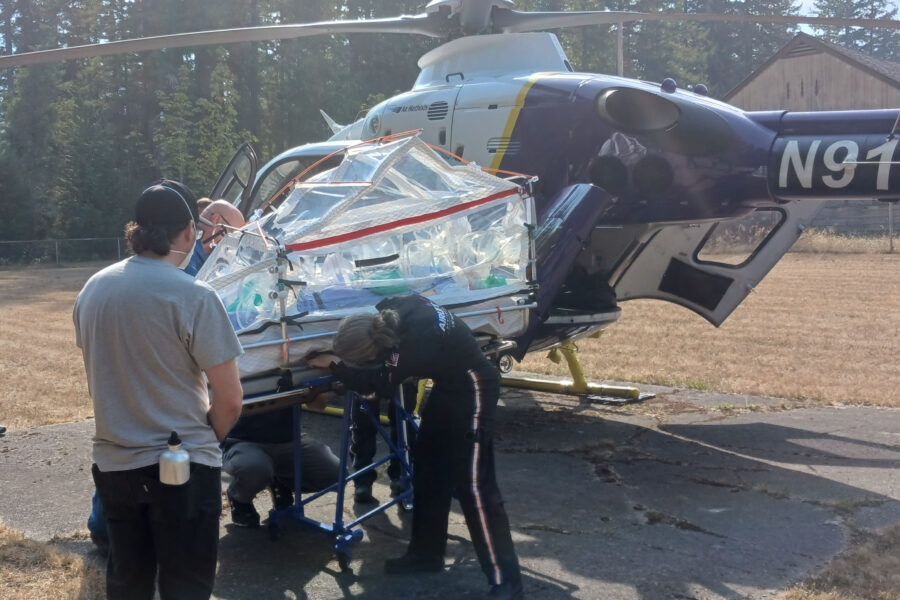Imagine caring for patients – even visiting hospitalized loved ones – without donning the personal protective equipment necessary for high-risk infectious diseases.
UNMC’s Global Center for Health Security team, in partnership with Otherlab and funding from the Centers for Disease Control and Prevention, is making that vision a reality with ISTARI, the Isolation System for Treatment and Agile Response for high-risk Infections. The device is a modular, disposable, negative pressure isolation patient care system that can be assembled rapidly for COVID-19 and other biological threats.
“The ISTARI concept is revolutionary,” said James Lawler, MD, co-executive director of the Global Center for Health Security at UNMC. “We essentially wrap the PPE around the patient so health care workers can interact without having to don and doff PPE, enabling quick, immediate and persistent access to the patient.”
Pending FDA clearance, the first ISTARI device, which is being marketed as the CareCube, will be available nationwide as a cost-effective way to improve care and infection control for patients with COVID-19 or other infectious diseases.
Earlier this month, UNMC experts joined first responders in East Jefferson County, Washington, and a medical crew from Airlift Northwest to test the device intended to protect health care workers from patient-acquired infections during transport by ground or air ambulance.
For the simulation exercise and device test, UNMC teamed with the East Jefferson County Emergency Medical Services, UW Medicine and Airlift Northwest.
“The COVID-19 pandemic revealed vulnerabilities in infection-control measures in the U.S. healthcare system and around the world,” said Jana Broadhurst, MD, PhD, the principal investigator for developing ISTARI and director of the Nebraska Biocontainment Unit Clinical Laboratory at UNMC. “The ISTARI allows close observation and aggressive care of patients who require isolation with much less PPE use.”
The Washington State-based exercise, funded by a Centers for Disease Control and Prevention grant aimed at strengthening infection-control protocols, did not involve transporting live patients. Instead, it used a manikin.
In separate simulations, manikins at the Quilcene Fire Department were conveyed in an ambulance and an Airlift Northwest helicopter – each outfitted with an ISTARI prototype transport envelope. Medical transports of extended durations gave crews a chance to work with the manikin through the device, and then the manikin was returned to a simulated emergency department back at Quilcene Fire Department.
The purpose was to get immediate feedback on the device’s ease of use and perceived value from emergency medical technicians, flight crew and medical staff, including infectious-diseases and critical care specialists.
The ISTARI devices were designed to facilitate patient care and limit infection and viral or other pathogen spread in a range of settings: during pre-hospital transports, in established health care facilities such as emergency departments and in low-resource areas and field hospitals.
David Brett-Major, MD, of the Global Center for Health Security, called the exercise a success.
“This execution of a complex exercise by UNMC and its partners demonstrated the power of innovation in distributable infection prevention and control practice,” he said. “Ground and air crews accomplished every procedure asked in the care of their simulated patient. UNMC received great feedback from participants and observers, and the prototype and some of our field exercise approaches will improve as a result.”
